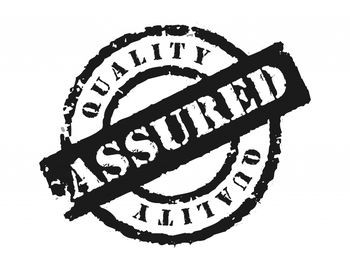Quality Assurance Certification


In short, the activity or process that proves the suitability of a product for the intended purpose could be described as quality assurance. The quality assurance process takes care of the quality of the products and ensures that customer requirements pertaining to the products are met. The certifications used to assess different products have different parameters which should be understood thoroughly. Total quality management is vital for the survival and profitability of business nowadays. Let us find more information on this topic.
Quality Assurance Certification (Software Industry)
Certifications like the ISO and CMMi, P-CMM, etc., are some of the most sought after quality certifications in the IT-ITES sector. The quality assurance procedures are implemented in software testing.
International Standards Organization (ISO): It is a European standard used for quality assurance. The ISO 9000 systems makes use of different documents or procedures for quality assurance, namely, ISO 9001, ISO 9002, ISO 9003. The ISO 9000 and ISO 9003 documents contain supporting guidelines. The ISO 9001 looks after the design, production, installation and maintenance/servicing, while the ISO 9002 is used for production and installation only. The final inspection is done with the help of the ISO 9003 model.
Capability Maturity Model Integration (CMMi): Technically, CMMi is not a certification. The organization in question is actually appraised and awarded a maturity level rating on the scale of 1-5. The CMMi acts as a guiding force in the improvement of the processes of an organization. The management of development, acquisition and maintenance of the services and products of a company is also improved with the help of CMMi. A set of proven practices are placed in a structure to assess the process area capability and organizational maturity of a company. The priorities for improvement are established and it is seen that these priorities are implemented properly with the help of CMMi.
People Capability Maturity Model (P-CMM): The P-CMM model is similar to SW-CMM (Software Capability Maturity Model) in its approach. The objective of P-CMM is to improve the software development capability of an organization by means of attracting, developing, motivating, organizing and retaining the manpower or the required talent. The management and development of the workforce of a company is guided by the P-CMM model. The P-CMM model makes use of the best current practices used in organizational and human resource development to achieve its objectives.
e Services Capability Model (eSCM): The eSCM model serves the needs of the BPO/ITES industries. This model is used to assist the customers in measuring the service provider’s capability. The measurement is needed for establishing and managing the outsourcing relationships which improve continually.
BS 7799: It is a security standard which originated in the mid-nineties, and till the year 2000 it evolved into a model known as BS EN ISO17799. It is difficult to comply with the requirements/standards of this model since it covers the security issues comprehensively and contains the control requirements that are significant in number.
QAI Certification Program
The Quality Assurance International (QAI) is an agency which awards the organic certification to the Producers, Private labelers, Processors, Retailers, Distributors and other ‘links’ involved in the production of organic food.
Food and Drug Administration Certification
The Food and Drug Administration (FDA) of the US awards quality assurance certification for the food products which comply with the performance and safety standards. The FDA certifies different types of products like the dietary supplements, drugs & vaccines, medical devices, animal drugs & food, cosmetic products, etc.
Canadian Standards Association (CSA) International
The various products certified under the CSA are building products, heating & cooling equipment, concrete products, home equipment, health care equipment, gas appliances, etc. Rigorous tests are conducted in order to award the quality assurance certificates.
The quality control and assurance certifications help in developing the trust of customers in a particular product. The quality assurance certificates awarded by various agencies also act as a motivational force for industries to maintain the required standards. The short account of various agencies awarding the certifications would help the concerned people in the industries.

